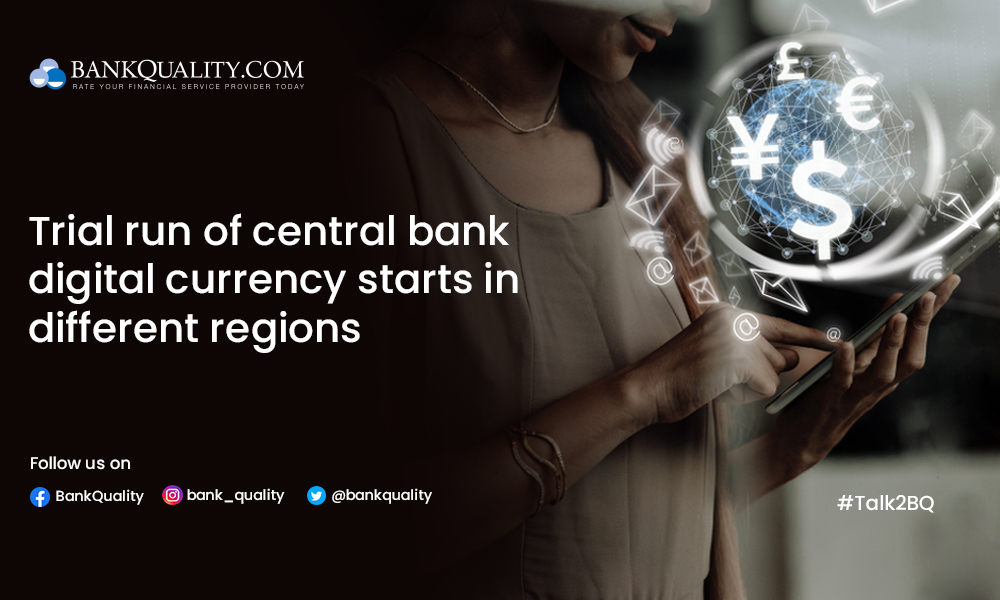
Central banks of Singapore, Australia, Malaysia, and South Africa have started the trials of central bank digital currency, which will facilitate cross-border transactions.
Bank of International Settlements (BIS) Innovation Hub led the trial to determine whether these currencies can make the transactions easier and cheaper.
This move is a part of the G20 roadmap, aimed at improving cross-border payments. The G20 has set a plan to address the frictions in cross-border payments such as being expensive, slow, and generally lacking transparency. Banks around the world have different operating times which means there are no available round-the-clock instant payments.
The goal of these multi-CBDC systems is to have a platform that is available 24/7 for real-time payments, without any intermediaries. More countries are joining this race to become digital and are developing their own central bank digital currencies which will be an alternative to decentralised cryptocurrencies such as Bitcoin and Ethereum.
Central banks started project Dunbar
Reserve Bank of Australia said the programme named “Project Dunbar” will create prototype platforms that can handle multiple CBDCs to enable cheaper and faster transactions between institutions and central banks for private and public sectors.
Michael Bullock, assistant governor at Reserve Bank Australia said, "Enhancing cross-border payments has become a priority for the international regulatory community and something that we are very focused on in our domestic policy work".
Andrew McCormack, centre head of the BIS Innovation Hub Singapore Centre said, "Project Dunbar brings together central banks with years of experience and unique perspectives in CBDC projects and ecosystem partners at advanced stages of technical development on digital currencies".
"We are confident that our work on multi-CBDCs for international settlements will break new ground in this next stage of CBDC experimentation and lay the foundation for global payments connectivity," he said.
A joint statement from the Reserve Bank of Malaysia, Singapore, Australia, and South Africa said the current project targets the development of shared platforms for cross-border transactions using multiple CBDCs.
Rashad Cassim, deputy governor at South African Reserve Bank (SARB) said, “After years of mostly domestic research and exploration, we are very pleased to see that these common insights about the need to explore cross-border CBDC payments and interoperability are coming together internationally”.
“We are particularly excited to be part of Project Dunbar given the SARB’s role in operating the regional wholesale settlement system in the Southern African Development Community (SADC),” he said.
Several central banks join China, which is years ahead of its CBDC plans
Many governments and central banks around the world are already exploring digital currencies. China is already planning a retail-focused approach for CBDC to replicate the cash, which is in circulation and develop digital yuan. Bank of England, Federal Reserve and the European Central Bank are in the early stages of exploring digital versions of their respective currencies which are focused on domestic markets.
The platform prototypes will debut at the Singapore Fintech Festival in November and the results of this new trial will be published in 2022.